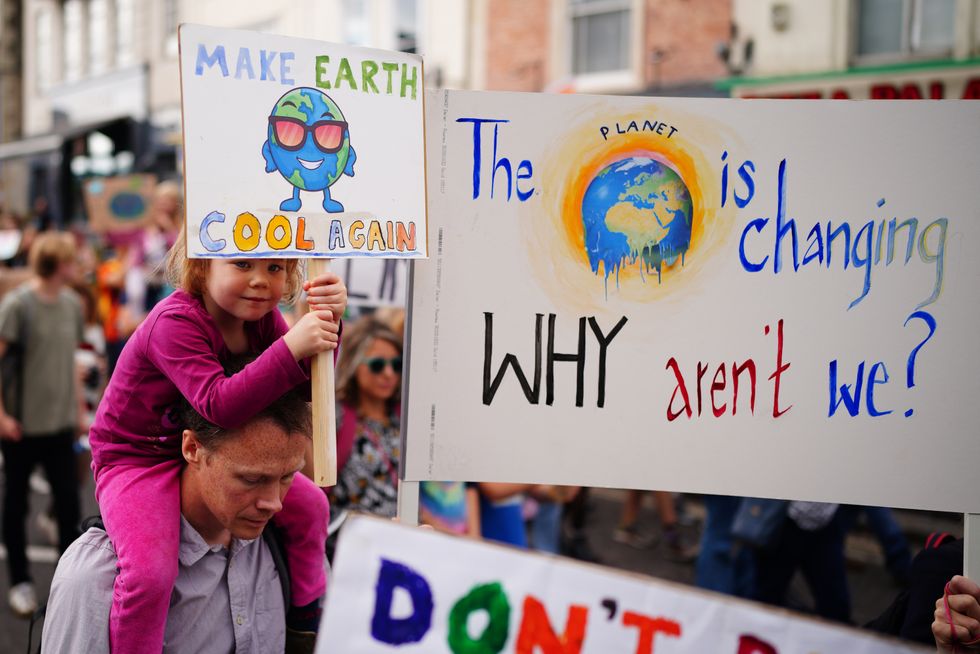Greta Thunberg 'inspires' schools to ban glitter and cut back on Christmas decorations to be eco-friendly

Parents and children taking part in a global youth climate strike. Eco-conscious pupils, parents and teachers are demanding more action on the climate crisis during the festive season.
Ben Birchall









